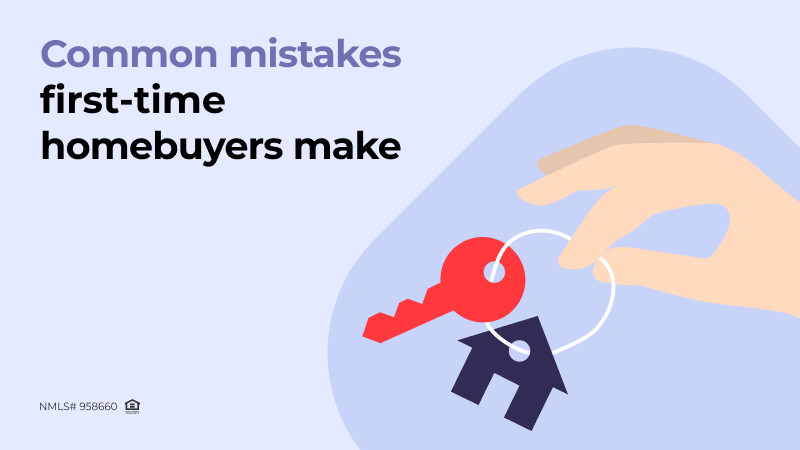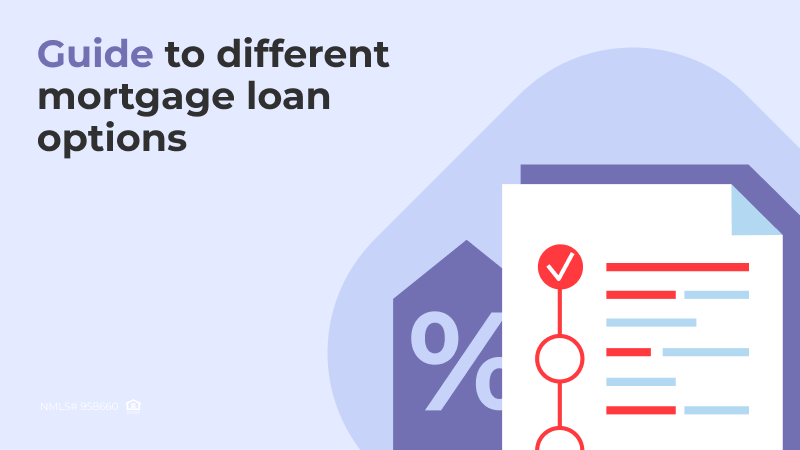
Introduction
The excitement of stepping through the front door, the fresh paint scent, the echo of your footsteps on hardwood floors, and the sense of accomplishment… This is what buying your first home might look like in your dreams. But in reality, things aren’t always so picture-perfect. Did you know that “82% of Americans who bought a home in 2023 or 2024 have at least one regret about the homebuying process” (American Home Buyer Report: 2024 Edition)? These statistics show just how important it is to be informed and prepared when entering the housing market. By knowing what to expect and how to prepare for common potential pitfalls, you can increase your chances of finding the perfect home. We’re here to make it easier for you; in this article, we’ve compiled the most common mistakes first-time homebuyers make and tips on how to steer clear of them.
Common Mistakes & Solutions
Before you start house-hunting, it helps to be aware of some common mistakes first-time buyers often make. The more you know, the smoother your experience will be and the fewer surprises you’ll face.
Failing to Budget Properly
Buying your first home is exciting, but it’s easy to focus too much on the down payment and forget about other important costs. Closing costs, property taxes, home insurance, and maintenance fees can add up quickly, stretching your budget further than expected.
Take some time to create a realistic budget that includes everything, not just the down payment. Use online mortgage calculators to get a clear picture of your monthly payments. And don’t forget to set up an emergency fund for those inevitable surprises, like a leaky roof or a busted water heater.
Waiting for a 20% Down Payment
One of the biggest myths about buying a home is that you need to save 20% for a down payment. While that’s a great goal, it’s not always necessary. Many mortgage programs offer options that allow you to buy a home with as little as 3% down.
Don’t wait until you’ve saved 20%. Explore mortgage programs that work within your budget, but be mindful that a smaller down payment might result in higher monthly payments or the need for private mortgage insurance (PMI). Talk to a lender to find out what options are available for you.
Not Getting Pre-Approved for a Mortgage
It’s tempting to start browsing homes before figuring out how much you can actually afford, but that can lead to disappointment. You might fall in love with a place that’s beyond your budget, or worse, get outbid by someone already pre-approved for a mortgage.
Before you even start touring homes, get pre-approved for a mortgage. This will give you a clear idea of what you can afford and show sellers that you’re serious. It also strengthens your position in a competitive market.
Overlooking First-Time Homebuyer Programs
A lot of first-time buyers don’t realize that there are special programs available just for them. If you’ve never owned a home or haven’t in the past three years, you might qualify for assistance that can make buying a home much more affordable.
Take some time to research first-time homebuyer programs in your area. These can offer things like lower down payments or even help with closing costs. Make sure to ask your lender, real estate agent, or mortgage professional about any programs you might qualify for – it could save you a lot of money.
Ignoring the Importance of Credit
Your credit score plays a crucial role in whether you’ll get approved for a mortgage and at what interest rate. If you haven’t checked your credit score or taken steps to improve it before applying, you could end up with a higher rate or even be denied.
Take a moment to check your credit report for any errors and get them fixed. Paying down high-interest debt and avoiding opening new credit accounts can help boost your score. The better your credit, the higher your chances of securing a favorable loan.
Letting Emotions Drive Decisions
It’s natural to get excited when you find a home you love, but buying a house is a big decision, so it’s important not to rush. Falling for a place just because it’s the first one that catches your eye can lead to regrets down the road – whether that’s financial strain or realizing it doesn’t fit your long-term needs.
Weigh all your options. Stick to your budget and remember your must-haves. Working with a real estate agent can help you stay grounded, offering objective advice and keeping you focused on what truly matters.
Failing to negotiate closing costs
Closing costs can add up quickly, and many first-time buyers don’t realize these are negotiable. Don’t be afraid to ask your lender or the seller if they’re willing to cover some of these fees. Even small adjustments can save you a lot of money when you’re closing the deal.
Conclusion
Buying your first home can be an exciting but overwhelming experience, and it’s easy to get caught up in the moment and make decisions you might regret later. That’s why it’s so important to take your time, do your research, and reach out to mortgage professionals with any questions along the way. Remember, this isn’t just a financial transaction – it’s about finding a place where you can build your future. By staying mindful of potential pitfalls and focusing on your long-term goals, you’ll be able to navigate the homebuying process with confidence and find a space that truly feels like home.


